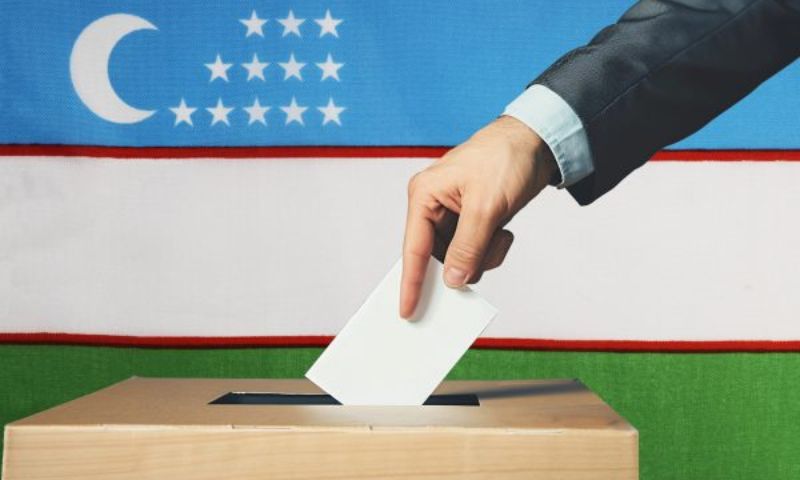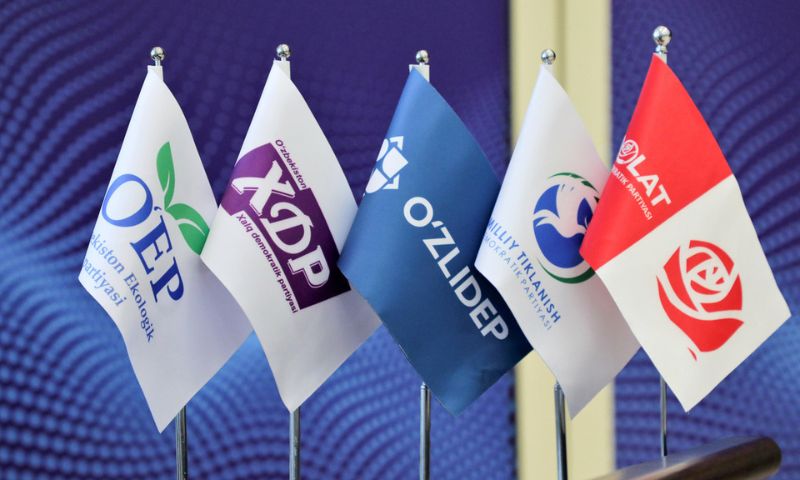TASHKENT: Uzbekistan is all set to go to the parliamentary polls on Sunday with five political parties in the race, reflecting the country’s commitment to increased inclusivity and democratic representation.
The participating parties are: Liberal-Democratic Party of Uzbekistan (UzLiDeP), Milliy Tiklanish (National Revival) Democratic Party, Ecological Party of Uzbekistan, People’s Democratic Party of Uzbekistan (PDP), Adolat (Justice) Social-Democratic Party.
The Liberal-Democratic Party of Uzbekistan (UzLiDeP), founded in 2003, is the current ruling party and the largest in Uzbekistan. Positioned as economically liberal and nationalist, UzLiDeP promotes policies aimed at expanding private enterprise, attracting foreign investment, and improving the overall business environment. It has been instrumental in advancing economic reforms under President Shavkat Mirziyoyev’s administration, emphasizing entrepreneurship, innovation, and market modernization to create a globally competitive economy. Social stability, the rule of law, and a pro-business climate are central themes in the party’s platform, as it seeks to consolidate its influence by appealing to a broad base of entrepreneurs and professionals.
The Milliy Tiklanish (National Revival) Democratic Party, established in 1995, is a national-conservative party focused on preserving Uzbekistan’s cultural and historical heritage. Known for advocating traditional values and promoting the Uzbek language and cultural identity, Milliy Tiklanish emphasizes patriotism, educational reform, and youth development. The party also supports tourism and cultural industries as essential drivers of economic growth and national pride. It resonates strongly with voters who prioritize national identity and cultural heritage, seeking to strengthen ties between Uzbek citizens and their historical roots.
The Ecological Party of Uzbekistan, formed in 2008, is the only party in the country with a primary focus on environmental protection and sustainable development. The party advocates for policies that address climate change, reduce pollution, and promote renewable energy. Its manifesto calls for the responsible management of natural resources, the adoption of green technologies, and the conservation of ecological stability. The Ecological Party works to raise public awareness of environmental issues, promoting initiatives that encourage citizen participation in environmental preservation. While it is a relatively small party, it has carved out a niche among environmentally conscious voters and those who prioritize sustainable development.
The People’s Democratic Party of Uzbekistan (PDP), the oldest among the current political parties, was established in 1991 and represents a center-left, socially democratic platform. With a manifesto focused on social justice, equality, and protection for vulnerable populations, PDP seeks to establish a welfare state that provides comprehensive social services, such as healthcare, education, and social security. The party also advocates for fair wealth distribution and policies aimed at reducing income inequality. Traditionally aligned with workers and lower-income citizens, PDP has a longstanding reputation for addressing the needs of Uzbekistan’s disadvantaged communities.
The Adolat (Justice) Social-Democratic Party, founded in 1995, shares PDP’s center-left orientation but emphasizes social equality and labour rights with a distinct focus on a social market economy. Adolat’s platform supports fair wages, improved working conditions, and access to quality healthcare and education. It advocates for reduced income inequality and improved living standards across Uzbekistan. The party has garnered support among professionals, labor groups, and those who value equitable opportunities in the economy.
This election will be conducted using a mixed majoritarian-proportional system, marking the first use of this approach in Uzbekistan. Under this system, voters will elect 75 deputies from single-member constituencies in a majoritarian format, where individual candidates compete directly within defined electoral districts. The remaining 75 seats will be filled through proportional representation based on party lists, allowing citizens to cast votes for political parties alongside individual candidates.
Importantly, the system mandates that at least 40% of candidates nominated by each party must be women, both in single-member constituencies and on party lists, aiming to ensure significant female representation in Uzbekistan’s parliament and promoting gender diversity at all levels of government.

The participation of five prominent political parties in Uzbekistan’s election represents a meaningful step towards political pluralism and an evolving democratic landscape in the country.
Each party brings a unique set of priorities, from economic liberalization and environmental sustainability to social justice and national identity, illustrating a growing diversity in political thought and the issues championed within Uzbekistan’s political arena. This breadth of representation allows for a more robust debate on national priorities, giving voters the opportunity to choose candidates and platforms that align with their own values and interests. Moreover, the presence of multiple parties competing in a fair and inclusive electoral system signifies a commitment to transparency and accountability, fostering trust between the electorate and the governing bodies. It highlights a dedication to involving diverse perspectives in shaping policies and, by extension, a stronger foundation for social cohesion and responsive governance in Uzbekistan’s future.























